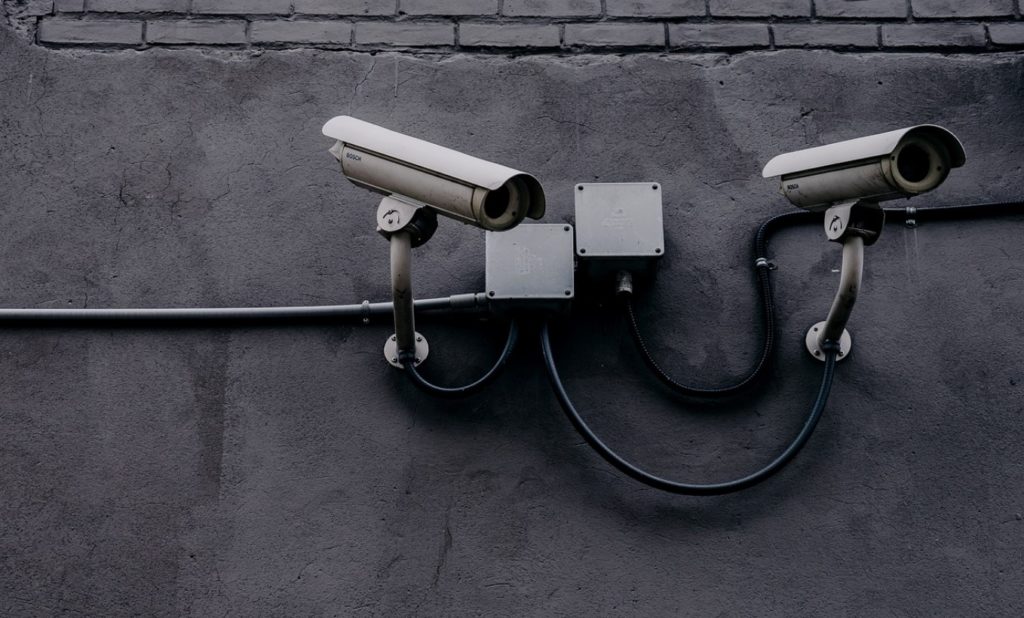 By B.N. Frank
By B.N. Frank
The Federal Communications Commission (FCC) is supposed to protect Americans from the telecom industry. Over the years, the agency has been heavily criticized and sued for not doing so (see 1, 2, 3). Perhaps due to growing pressure from security experts and legislators, the agency is taking more steps to address and reduce national security risks posed by products from certain Chinese manufacturers. Nevertheless, these steps are reportedly limited.
From The Verge:
The FCC just banned these Chinese cameras and telecom hardware from reaching the US
While Huawei, ZTE and Hikvision have seen many sanctions, the FCC’s new move to withhold authorization might actually keep some products off shelves.
By Sean Hollister / @StarFire2258
Huawei, ZTE, Hikvision, Hytera, and Dahua all sell telecommunications equipment and video surveillance technology into the United States, but many of their future security cams and radio hardware will no longer be welcome. The Federal Communications Commission has just announced it’ll no longer authorize some of their equipment — which is a big deal, because companies can’t legally import or sell anything with a radio in the US without that authorization.
But as I’ll explain, it’s not a blanket ban, either. Clearly-marked consumer products are likely going to be exempt.
Weren’t these companies already banned? Not exactly. You’re probably remembering how the Trump administration didn’t make Chinese telecom companies feel particularly welcome, accusing firms like Huawei, ZTE and DJI of being national security threats and adding them to the Commerce Department’s “Entity List.” But while that had repercussions, it didn’t actually keep their products out of the United States. You’ve had no trouble buying a DJI drone, for instance.
The Entity List only goes so far
What the Entity List does is keep US companies from exporting technology to those Chinese companies, not the other way around. It could have impacted the availability of Android updates on Huawei phones, for example, because Android provider Google is a US company. And, other government groups can take their cues from the Entity List as well. Government agencies have had a way harder time spending federal dollars to buy Chinese equipment for a while now.
“[O]nce we have determined that equipment from certain manufacturers poses an unacceptable national security risk, it makes no sense to allow that exact same equipment to be purchased and inserted into our communications networks as long as federal dollars are not involved,” reads part of a statement from FCC commissioner Brendan Carr.
And while the FCC has its own “Covered List” of companies that it considers a national security threat — and ordered network operators to rip out and replace all their Huawei and ZTE equipment at a likely cost of billions — the agency hadn’t yet kept companies from importing or selling those products into the United States.
When Best Buy and Home Depot stopped selling Dahua and Hikvision security cameras, it wasn’t because the government ordered them to stop. Those stores simply didn’t want to be associated with reported human rights violations. You can still find both brands on Amazon.
But even Amazon won’t be able to legally sell newer products if the FCC doesn’t grant its authorization. Every radio-frequency product imported for sale in the United States goes into the FCC OET database (which is one of the reasons that eagle-eyed gadget-lovers are able to use it to reveal unannounced new products). If you’re not in that database, you can’t import mass quantities of a product for sale.
Yet, when it comes to Hytera, Hikvision, and Dahua security cameras, they may just need to brand their products more carefully to escape a ban. Technically, the FCC is only denying authorization to equipment designed “for the purpose of public safety, security of government facilities, physical security surveillance of critical infrastructure, and other national security purposes.”
“For these three companies, we will require them to document what safeguards they will put in place on marketing or sale for these purposes,” reads part of a statement from FCC chair Jessica Rosenworcel. “[W]e are putting in place a freeze on all of their telecommunications and video surveillance equipment authorization applications until that work is done.”
So if they agree to market the cams to consumers, or small businesses, they can probably be imported and sold just fine. Also, it’s not like the FCC is revoking authorizations for existing products.
The FCC isn’t closing this loophole all by itself; it was ordered to do so by the Secure Equipment Act of 2021, which basically just says that the FCC won’t review any authorization applications submitted by any company on that Covered List. That means it’ll be a big deal when any new companies arrive on the list, too.
Counter Markets Black Friday Sale
— Click Here for 30% OFF Until Nov. 30th —
Use Code CMFRIDAY at Checkout
Activist Post reports regularly about the FCC as well as privacy-invasive and unsafe technology. For more information, visit our archives.
Image: Pixabay
Become a Patron!
Or support us at SubscribeStar
Donate cryptocurrency HERE
Subscribe to Activist Post for truth, peace, and freedom news. Follow us on SoMee, Telegram, HIVE, Flote, Minds, MeWe, Twitter, Gab, What Really Happened and GETTR.
Provide, Protect and Profit from what’s coming! Get a free issue of Counter Markets today.

Be the first to comment on "FCC Bans Some (but not all) Chinese Tech Due to Nat’l Security Risks; Still Not Revoking Existing Authorized Products"